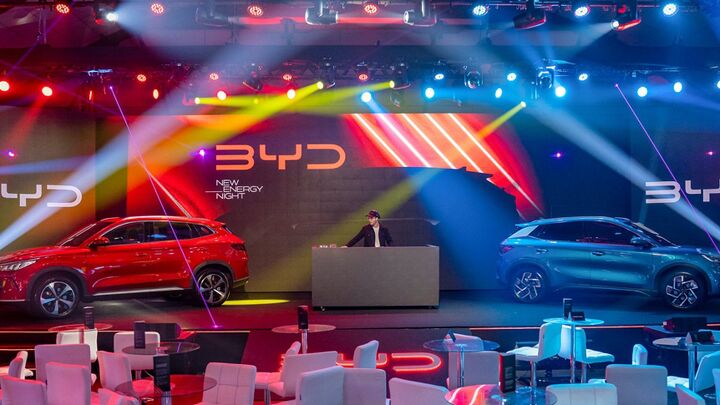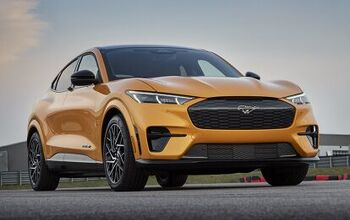BYD Pumps Brakes on Entering U.S. Market

BYD is a massive Chinese company operating in multiple industries, including solar panels, industrial equipment, and autos. Rumors of its imminent arrival in North America have swirled in recent months, and the automaker was expected to mount a strong showing at CES in Las Vegas earlier this month, but nothing materialized.
The company initiated a deep study of the U.S. market in 2022 to determine how to set up a distribution network and the best ways to develop a dealer presence. That the announcement at CES never came shouldn’t be that surprising, considering the chilled relations between Washington and Beijing.
As Automotive News pointed out, the United States government has implemented legislation in the Inflation Reduction Act that incentivizes domestic production of vehicles and components. That has cooled BYD executives’ enthusiasm for U.S. expansion and likely squashed any chance of rapid growth here in the near future.
America’s rapidly growing EV market is too attractive for BYD to stay away forever, but caution will be key. The Chinese company trails Tesla in global deliveries, and despite its success elsewhere, a failure in the U.S. would come at a heavy cost. Lucky for BYD executives, waiting longer means a chance to observe another major Asian company’s activities here. Vietnamese giant Vinfast recently shipped its first EVs stateside, giving BYD an excellent wait-and-see opportunity.
[Image: BYD]
Become a TTAC insider. Get the latest news, features, TTAC takes, and everything else that gets to the truth about cars first by subscribing to our newsletter.

Chris grew up in, under, and around cars, but took the long way around to becoming an automotive writer. After a career in technology consulting and a trip through business school, Chris began writing about the automotive industry as a way to reconnect with his passion and get behind the wheel of a new car every week. He focuses on taking complex industry stories and making them digestible by any reader. Just don’t expect him to stay away from high-mileage Porsches.
More by Chris Teague


































Comments
Join the conversation
China is notorious for cheap knock-offs and subpar-quality products. They're also known for building consistently solid products that billions of people use worldwide. While cars from China haven't won the world over, some decent examples and some not-so-great examples exist. https://www.hotcars.com/11-surprisingly-awesome-cars-from-china-and-19-that-are-not-good/
"The Chinese company trails Tesla in global deliveries"
BYD actually outsells Tesla in global deliveries, but those deliveries are split between Plug-In hybrids and EV's, with a total of 1.9 million NEV's compared to 1.3 million for Tesla. They are behind in pure EV's, but are growing at a faster rate and could take the lead there as well this year.
BYD's greatest strength is vertical integration. They make virtually every part of the car, outside of the glass and tires, vs. the typical vehicle that has ~80% come from suppliers. They own and operate virtually every step, from the mines that supply the raw materials to the cargo ships that deliver the vehicles. They mine and refine materials, build the cells and packs, build motors and inverters, build electronics and microchips within them... And they are a supplier to other companies like Tesla, Toyota, Apple, VW, Ford, etc. All with a high level of automation.
Vertical integration puts BYD in perhaps the best position to reduce costs... which is also a hinderance to entering the US market. If they significantly undercut the competitors by selling their cars for what they sell them for profitably in China, they will be accused of dumping and banned from the market. This already happened with solar panels that BYD also makes and sells profitably throughout much of the rest of the world. If they sell them at a significantly higher price and pay the 27.5% import tariff on top of that, while not being able to access EV subsidies, it would be a challenge to stay competitive. In order to sell in the US, they will need to use the factories they are building outside of China.
@TMA1: that was fascinating and I've never heard of that. Do you remember how you came upon that or was it deemed not important and thus buried in the news? Thanks.
That's awesome. Thanks for the link and the quick summary!